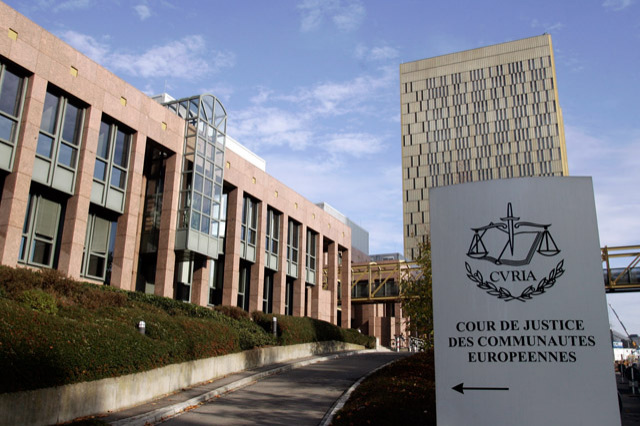 The Court of Justice of the European Union (CJEU) in Luxembourg has affirmed the legal position that internet users have the right to browse news sites without the threat of infringing copyright law.
The Court of Justice of the European Union (CJEU) in Luxembourg has affirmed the legal position that internet users have the right to browse news sites without the threat of infringing copyright law.
The argument, put forward by the Newspaper Licensing Agency (NLA) that represents the interests of media owners, was that even temporary electronic copies made on an individual’s computer required a licence and a licence fee to be paid and this could have cost the PR industry many millions in licensing fees had the ruling of CJEU clarified the legal position today.
The CJEU accepted all of the legal arguments of the PRCA, the largest professional body representing the interests of the PR industry in the UK and Meltwater, the news aggregation service.
The CJEU in its 12 page judgment agreed that browsing and viewing articles online doesn’t require authorisation from the copyright owner.
Although today’s judgment is a victory for common sense, the NLA had vigorously pursued the argument that millions in licensing fees should end up in the bank account of its members and looked to the PR industry as a potential source of new income.
Such a move is a short sighted and the decision of the EJEU completely vindicates the PRCA and Meltwater in standing up to the NLA over this issue.
What this expensive and time consuming legal action has done is to have strengthened negative perceptions about the conduct of the NLA.
As I’ve mentioned in an earlier blog, the NLA would have been better placed to have used its energy and resources in fostering a stronger working relationship with the PR industry as clearly this will have served the interests of its members much more effectively over the longer term. Instead, the PRCA and Meltwater were forced to engage in expensive legal proceedings not just through the Supreme Court in the UK but also to the CJEU in Luxembourg.
The judgment means that Internet users are now protected by the temporary copy exception of EU copyright law when they read or browse content online.
 PRCA Director General Francis Ingham observes: “We are utterly delighted that the CJEU has accepted all of our arguments against the NLA, which represents eight national newspapers. The Court of Justice, like the Supreme Court before them, understands that the NLA’s attempts to charge for reading online content do not just affect the PR world, but the fundamental rights of all EU citizens to browse the Internet. This is a huge step in the right direction for the courts as they seek ways to deal with the thorny issues of Internet use and copyright law.”
PRCA Director General Francis Ingham observes: “We are utterly delighted that the CJEU has accepted all of our arguments against the NLA, which represents eight national newspapers. The Court of Justice, like the Supreme Court before them, understands that the NLA’s attempts to charge for reading online content do not just affect the PR world, but the fundamental rights of all EU citizens to browse the Internet. This is a huge step in the right direction for the courts as they seek ways to deal with the thorny issues of Internet use and copyright law.”
Clearly the ruling supports the principle of internet freedom across the European Union and serves the interests of business, technology and millions of internet users and ensures protection from being accused of copyright infringement.
 In April 2013, the Supreme Court ruled that anyone should be free to visit and read or browse a newspaper website without fear of infringing copyright law.
In April 2013, the Supreme Court ruled that anyone should be free to visit and read or browse a newspaper website without fear of infringing copyright law.
In his judgment, Lord Jonathan Sumption explained it was desirable that any decision on the point of accessing such content be referred to the Court of Justice of the European Union.
In a previous UK Copyright Tribunal ruling, the PRCA and Meltwater were successful in reducing the fees for all businesses, saving millions for UK businesses.
Read my latest blog on why there should now be a moment when both sides should reflect on how to re-build the relationship.














[…] the acrimonious legal battles that the PRCA has been having with the NLA and the subsequent decision at the Court of Justice of the European Union, I think it’s time for both sides to do well in […]